Issues are not usually black and white but shades of grey; not good versus evil. Not so with Russia’s Ukraine atrocity. There’s talk of the International Criminal Court investigating war crimes. Investigating? “War crimes?” The entire thing is a crime. What’s to investigate?
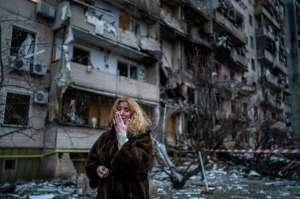
Putin labels it a “special military operation,” and any Russian calling it “invasion” or “war” is subject to arrest. Yet paradoxically he purports to justify doing what he denies doing on the lie that Ukraine is run by crazed Nazis. Saying it’s not a legitimate country, traditionally belonging to “Great Russia.”
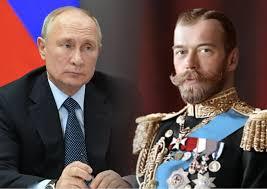
That’s the real gravamen, supplying at least a pretense of appealing to human aspiration. Claiming Russian civilization’s inherent natural greatness, its consequent proper world historical status, and its strong traditional values as against the alleged corruption, decadence, and weakness of the West.
Which has supposedly humiliated Russia. This “humiliation” trope is a powerful driver in human psychology. We see it too in Muslim attitudes toward the West. And in China, carrying a big chip of truculent nationalism on its shoulder, to redress past humiliation. Though Mao harmed China far more than the West ever did. Xi Jinping’s talk of “The Chinese Dream” doesn’t mirror “The American Dream” of individual human fulfillment; Xi’s is about swaggering on the global stage. Just like Putin’s Russian greatness dream.
Russia’s “humiliation” was the loss of the cold war, of empire as the Soviet Union broke apart (many nations freed, including Ukraine), and the economic travails of the transition out of communism (which was never going to be easy). Blaming it all on a supposedly craven West rather than any failings in Russia’s national character and its inglorious record. In fact we tried to help them overcome that legacy and build back better. Though I felt we could have done more. But Putin took Russia down a different road. And if Russia was humiliated, it had only itself to blame.
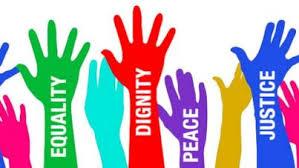
Just as with “The Chinese Dream,” what is conspicuously missing from the “Russian Greatness” trope is any nod to real human values, serving people’s wellbeing not just as parts of a collective but as individuals. As with Ukraine’s resistance to Russia — they have something truly worth fighting for. What Russian Greatness ideology aims to provide instead is (at best) a form of pride, puffing people up (even if their lives are crap) as part of something (supposedly) great.
Strength is a key element, also psychologically potent. Even if not exactly believing might makes right, people are attracted by strength per se contrasted against weakness. That’s what Putin is selling. It even attracts some in the Western right devoid of actual principles, fools like Fox’s *ucker Carlson, and of course Trump. But what is the strength used for? Surely it’s a perverse sort of pride in strength when used for bombing cities and slaughtering innocents. No “greatness” there.
At least communism as an ideology purported to offer a path (however mistaken) to better lives for individual people. Putin’s Russian Greatness idea doesn’t even try.
And of course calling the West corrupt is a cruel joke. Russia itself being endemically shot through with corruption. Putin hardly pretends to battle it, kleptocracy an organizing principle of his regime. (In China too corruption is a deeply entrenched way of life.) While in fact the West is the least corrupt civilization ever — because of rule of law, which Russia lacks. A nation where people inconvenient to the regime are simply murdered calls the West “corrupt?”
Its permissiveness Putin calls decadence. This too points up the difference in mindset. We are indeed permissive — to allow as many people as possible to flourish and enjoy their lives in their own individual ways.
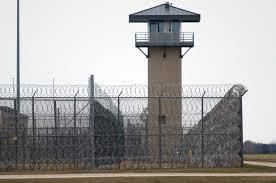
The “traditional values” that Russia is said to stand for are antithetical to that, repressing people, imposing upon them not values they themselves choose but rather values chosen by others (often based on totally false scripture). And Russia today is among the most repressive nations on Earth — become one big prison. Crushing, not serving, human values.
At the heart of this difference between our values (and Ukraine’s) and Russia’s (and China’s) is democracy. Nothing more fundamental, giving everyone a voice, elevating their individual human dignity. If Putin really believed Ukrainians are blood-bound brethren, he might simply have asked them. But he knew the answer. They see Russia for what it is, and voted against that — and continue doing so, with Stingers and Javelins and Molotov cocktails.
In his Wednesday speech to Congress, Ukraine’s President Zelensky proposed creating a “Union of Responsible Countries,” to combat evils like Russia’s. I’ve written similarly of a league of democracies, to do what the United Nations was conceived to do but cannot (blocked mainly by Russian and Chinese vetoes). Such a league would have the moral authority to fill that void and promote true human values throughout the world.
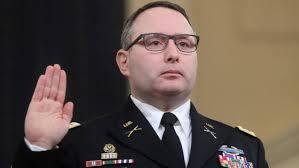
I attended two zoom briefings by Alexander Vindman. The National Security Council official fired by Trump for testifying truthfully in the first impeachment; now working on Ukraine issues. The big take-away is that Russia can’t win. Regarding a no-fly zone, Vindman thought it wouldn’t mean WWIII, questioning whether Russia would take the huge risks of shooting at NATO aircraft. But anyway, he said the West seems to be giving Ukraine enough weaponry to defend its skies itself. Though the fear is that Russia, otherwise stymied, would escalate to chemical or even nuclear weapons.
Ukraine should agree to whatever it takes (short of ceding territory) to give Putin a fig leaf to claim victory and withdraw. And once Russian troops are out, Ukraine should ignore that agreement. It owes Russia no good faith on anything agreed under criminal duress.
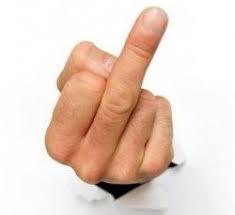
Especially after Russia violated its own 1993 commitment to honor Ukraine’s borders in exchange for giving up its nukes. If Russia remonstrates, the answer should be . . . .
